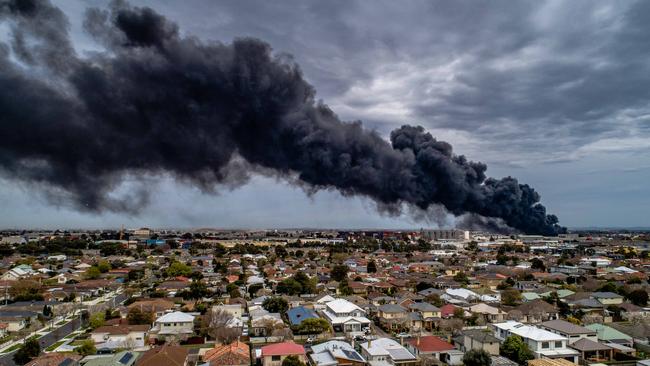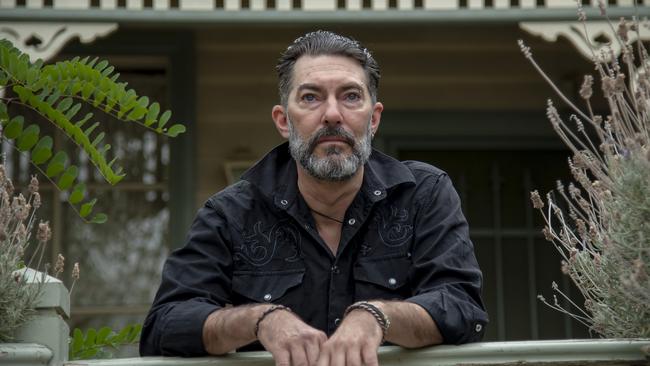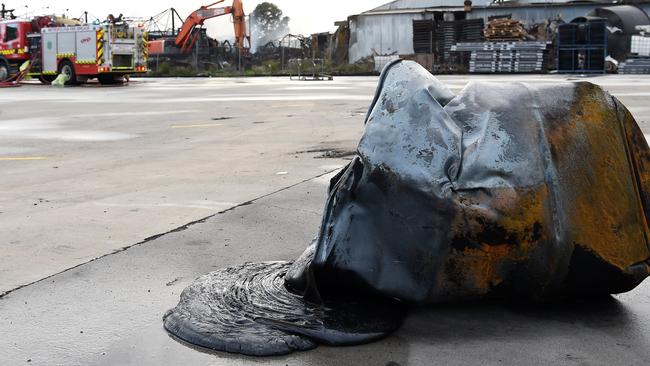Toxic smoke from last year’s West Footscray fire blamed for residents’ ongoing health problems
People living near the West Footscray factory that erupted in a fireball last year say they’ve had months of nausea and headaches after breathing in toxic smoke. But it’s the claim from one man about what the chemicals have done to his nose that’s the most alarming.
North West
Don't miss out on the headlines from North West. Followed categories will be added to My News.
A giant blackened pile of burnt drums that held dangerous chemicals is all that’s left of the West Footscray warehouse engulfed by fire last August.
But the effects of the thick, black, poisonous smoke that hung over the western suburbs for days is still being felt by people nearby.
More than six months after the fire, locals say they are experiencing ongoing side-effects including nose bleeds, headaches and nasal trauma.
READ MORE:
DANGEROUS CHEMICALS FOUND DURING WEST FOOTSCRAY FIRE
WEST FOOTSCRAY FIRE: WHY IS INDUSTRY SO CLOSE TO INNER CITY
FIRE WEST FOOTSCRAY: FACTORY FIRE BURNING OUT OF CONTROL
“Two days later I walked to Cruickshank Park just to see what kind of damage had been done,” he said. “I was there for 30 minutes and ever since I’ve had migraines.”
Mr Blashka has seen three doctors but they can’t find a cause for the symptoms.
“Every day when I blow my nose there’s blood,” he said. “There’s been a lot of people with health problems and no one is taking it seriously.”

A West Footscray couple, who did not want to be named, live less than 1km from the fire site and are also still experiencing health issues. Mr M said since the fire he “suddenly had constant nose bleeds” and a hole about the size of a pea had formed between his nostrils inside his nose.
Ms J said she had experienced constant headaches and nausea.
A United Firefighters Union spokeswoman said firefighters who attended the blaze were still experiencing health issues.
EPA testing at the warehouse and Stony Creek found acetone, oxyacetylene, benzene, methylethylketone, other industrial solvents, detergents, copper and asbestos.
Yarraville father Peter Camilleri said he and his son were “very unwell” at the time of the fires.

“We had lots of hospital and doctor visits and I had to take two weeks off work,” he said. “My boy was the most affected because he has asthma. He gets it more regularly than what he used to.”
Mr Camilleri said doctors could not conclude if their illnesses were related in any way to the smoke or chemical run-off from the fire.

The warehouse where the fire started was not registered under the Dangerous Goods Act but was known to contain hazardous materials.
The EPA issued a warning in the immediate aftermath of the blaze, which included direct instructions to not go in Stony Creek or put hands in the water.
The agency continues to warn people not to eat fish from the creek, let dogs swim there or walk along its edge.
A coronial investigation is under way at the request of Melbourne’s firefighters.
Factory owner Chris Baldwin could not be reached for comment.


